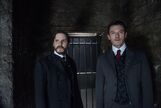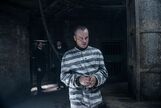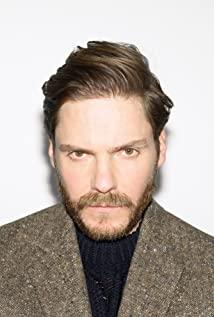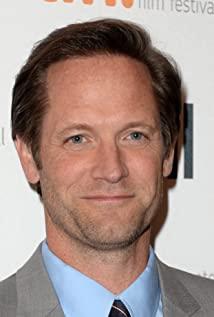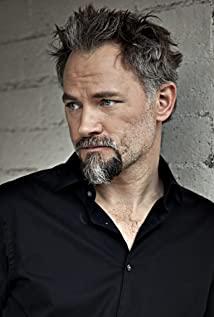Although "The Alienist" is difficult to compare with my favorite dramas such as "Mad Men" and "The Knick", it is still a work of conscience that is quite appetizing to my appetite in the American dramas I have watched over the years.
The original novel of the same name was published in 1994, and it was on the best-selling list in the first month. It has cultivated many fans in more than two decades, among which there are a considerable number of "iron fans", who regard the original as a kind of The existence of "Holy" can hardly tolerate any changes to the script...Of course, they have a lot of opinions on the drama, including setting design, plot setting, and character creation.
I found the novel (and its sequel) before the filming of the series, and watched the series a year after reading. Although there is room for further improvement in terms of plot selection and rhythm arrangement, the flaws are not concealed. For the adaptation, in general, I Quite satisfied.
~·~·~·~·~·~·~·~
Although the original novel is based on the identity of the character, it does not belong to the "character orientation". As far as "The Alienist" is concerned, Carr is not a very good writer (the personality structure of the protagonist, Dr. Kreizler, is enriched in the sequel "The Angel of Darkness"). Although the main characters have distinct personalities, But all have a single personality and lack three-dimensionality. As a detective novel, "The Alienist" did not follow the "plot orientation". After all, Carr is a scholar. I guess he is a bit disdainful of using popular fiction's habitual method-to attract readers with a thrilling storyline. In my opinion, a more accurate evaluation may be: this novel adopts a "spectacular orientation." The word "spectacle" does not have a derogatory meaning here. The author is keen to describe the "spectacles" of New York society a century ago, describing the "spectacles" of human understanding at the beginning of the birth of psychological science, the brutal modus operandi, the "spectacles" of the tragic corpses, and the perverted psychology and terrible experiences of the murderers. .
From this perspective, the adaptation of the series is quite sophisticated: it dispelled the intention of filming a typical crime drama from the very beginning. The original book did not provide enough suspense, and a group of gentlemen and ladies who walked by carriages tracked down the murderer, but they couldn’t possibly be thrilled. Moreover, nowadays viewers have long been accustomed to killing N people within 45 minutes of an episode and catching a serial killer. Rhythm, telling a case in ten episodes, I am afraid it is not enough to stand out in terms of visibility. Therefore, the series strives to make a fuss about "readability", and the original work provides ample material for this purpose.
*·*·*·*
The various visual "spectacles" in the original work have been excellently displayed in the drama, city streets, interior decoration, utensils, costumes... the bits and pieces of the life of New Yorkers at the end of the 19th century, and even the suffering of the victims . What excites me most is the costumes of this film. As a formal dress controller, the doctor's white tie shape made me fascinated. I watched "The West Wing" two days ago. There was a state banquet where the main line was a state banquet. Several staff members wore white bow ties, but the baggy shirts were very eye-catching, which made me miss the straight and full chests of the men in "The Alienist". lining.
Not to mention the "spectacle", the series bravely chose to adopt the character orientation when adapting, using the character development and emotional changes as the bones to prop up the entire plot structure, and the sensational serial murders are just a part of the outside. Zhang epidermis. This can be seen through an anecdote: after the final episode of the show was broadcast, when AfterBuzz was doing a review, the live connection was Bill Heck, who played the murderer Beechum in the show. Mr. Heck mentioned that the original filming followed the original script. In the tenth episode, Beechum's monologue in front of Joseph was used to reveal the cause of his crime. Dubbing for the live version, he found that this passage was cut into what we saw later-Beechum muttered to himself, throwing out unbelievable fragments of words and phrases, making people wonder where these words were quoted. In order to make the audience feel the same for Kreizler's frustration and frustration that Kreizler didn't get the answer until the end, what price is it willing to pay? Many viewers expressed dissatisfaction with this, but I deeply admire it.
*·*·*·*
In order to consolidate the characterization, the script, on the premise that the main line of the plot is basically loyal to the original, has delicately enriched the side plots surrounding the main characters, especially the relationship line between Dr. Kreizler and Mary. Their feelings are difficult to shape under such a background, and they will appear false if they are not paying attention, and they lack the natural feeling that comes naturally. However, the processing of the drama version is great. It is not a tacky eight-point drama in which the passionate master bows to the mute maid, but the bitter and sweetness of two mutilated people making each other whole. They inspired each other to better themselves, perhaps this is the true meaning of love.
In the third episode, the two opposing scenes have been very contagious, especially when the doctor scolded Mary and went home: he walked into the kitchen, and Mary was wiping the knife. She heard the footsteps behind her and knew who it was, but she didn't turn around. The doctor stood there looking at Mary's back, trying to say something, but in the end he didn't speak, but quietly left after staring for a long time. But Mary understood what he was trying to say, he had already explained everything when he came to her, so she burst into a smile. There was no line in the whole scene, and the two never even looked at each other, but the forbearance of love in the air was so strong that it seemed to have weight.
The last three minutes of episode seven can only be described as "absolute". The filming is perfect, the acting is perfect.
The doctor summoned the courage to invite Mary to have a meal with him. The words were very polite, giving him the freedom to refuse and giving himself a step to accept the refusal. Mary left blankly. The doctor lowered his head, it was difficult to say that he was disappointed, because he did not allow himself any hope at all. In his eyes was a kind of "sure enough" faint frustration. When he found Mary walking into the room with the tableware, his whole person was lit up, his eyes sparkled, and an uncontrollable smile came to the corner of his mouth, but he immediately calmed himself down and sent his smile back. He told Mary to "sit closer," he couldn't help but stretched out his hand to pat the table in front of his left first seat, and even couldn't move his hand away, until Mary walked to him with a smile. I can almost see his nervous and excited scalp tingling, and the dream-like happiness that is so intense that it is unreal fills his body, making his mind blank for a moment.
I am afraid that no one has seen Laszlo Kreizler like this before. He is no longer the psychiatrist who can excite people with a few words, but has become a little boy who is at a loss in front of his beloved.
He clumsily and eagerly arranged dishes for her. He used silly topics to fill the silence. He can't eat a bite of food. He stretched out his hand with tentative weakness, but finally lowered his heart, and firmly covered the back of Mary's hand with his palm with a determination that was comparable to breaking the boat. What should I do after this? He has no idea at all. He had fear in his heart. He didn't know how Mary would react to this, but he insisted on not retracting his hand. This courage almost exhausted all the energy in his body.
It was Mary who saved him.
Mary put her other hand on his. Mary held his hand gently. Mary stood up because she wanted to be closer to him.
She held up his hand and rubbed her cheek, the endless gentle and complete acceptance gesture completely dispelled the sway and fear in his heart. He buried his head on Mary's chest, Mary caressed his hair, as if saying: Come on, with me, you will never be rejected, with me, you never have to be afraid.
Then he stood up and kissed Mary. This kiss didn't last long, but it was sweeter than all the honey in the world.
Throughout the process, you can hear their heavy breathing, but you can't even feel a trace of sensuality from it. The breathing just tells you how they value each other.
In the eighth episode, Dr. Kreizler tells John that he likes Mary because she has something he doesn't have. I don't think so. He fell in love with Mary because of these qualities, not because he didn't have them, but because he cherished them.
At the funeral of the ninth episode, he grabbed the dust, lifted it to his lips and kissed it, and then sprayed it on Mary's coffin. In this action, Daniel acted quite... unpretentiously. The scene of my brain replenishment is much more lingering, and I think he will slowly raise his hand, give a deep kiss, and then reluctantly throw it out. However, he did not do so. It was raining heavily, and the soil he had bent over to grab was wet, and the movement to his lips was extremely natural and smooth, without thinking about it, as if it should have been. After the kiss, he extended his arms and let go, even with a numb mechanical feeling. The son hit me--
By the time of the funeral, he was already numb from the pain...but the kiss was so soft.
I remembered, this is a kiss only for first love. It was not the passionate kiss that he could have enjoyed but never had the chance to send, but the light kiss he pecked on her cheek when she seemed to be standing in front of him, shy, sweet, and cautious. What he saw off was not only his lover, but also his first love. His first love and last love, condensed in this gentle kiss, will always be by her side.
Throughout the funeral, he only shed a line of tears, but with that kiss, it was heartbroken.
There are two deepest pains, one is that the prospects are insignificant and the other is that the past cannot be traced, which is the so-called "unobtained" and "lost." Dr. Kreizler accounts for both. He was annoyed that he had confessed too late and regretted that he was too careless to ignore the approach of danger. This was all well understood, but until he saw him wandering in the house like a ghost and wandering in the bedroom like a trapped beast. , I discovered the secret pain: the days when he was out, the days after he invited her to have a meal, and even going back, in those years when he had a secret love for her, when he was young When looking forward to the future, how many beautiful visions he had... He saw these beautiful things that once looked like a fairy tale floating from the clouds, drifting closer and closer, and almost at their fingertips, but suddenly shattered like this.
*·*·*·*
Although Dr. Kreizler’s love ended in tragedy, the screenwriter obviously didn’t want this rather dark story to fall into the abyss. Instead, he set up a character arc with the theme of "redemption", which was adapted from this film. A large-scale project that runs through the entire play and is of extraordinary significance.
The three protagonists of the book version are quite perfect in terms of personality. John Moore is a crime reporter. Although he is not very tolerant of his colleagues, he still has his professionalism and is a "mainstay" in society. Sara Howard's personality is extremely perfect. Even though she has experienced hardships in childhood, there is no shadow in her personality. Instead, she is confident and strong. It is a character that can only be enjoyed by a winner who has never experienced setbacks and bumps in life. Not to mention Laszlo Kreizler. When I read books, I regarded him as a "high-end" hero, an absolute gentleman and a spiritual nobleman. At that time I wrote in my diary: I can imagine Daniel playing John, but I can't imagine him playing Doctor Kreizler. This may be because the Dr. Kreizler in the book has a very important quality-maturity, the kind of confident maturity that belongs to the alpha male (I was in a daze when I read "The Angel of Darkness" because of this sequel. Dr. Kreizler lost the impressive confidence in the first book), but Daniel himself is not alpha male.
Sure enough, the personality of the characters in the drama version has been changed.
The trauma of the drama version of John Moore mainly comes from two aspects: one is the betrayal of his fiancée, and the other is the accidental death of his younger brother. By the end of the play, the betrayal of his fiancée has been healed by his love for Sara, and the heart knot of his brother's death is also saved by him. Untie. This is John's salvation, and this salvation is achieved entirely by the adaptation of the script.
Sara in the drama is very distressing. Finding that the horror of her father's suicide was not counted, she even had to hold a gun in her hand to relieve her father's pain. She never told anyone about this experience. I am afraid she is the only one in the world who knows the true passing of her father's death...until she told Dr. Kreizler all this. Only by speaking out courageously is the beginning of true "letting go". This is Sara's salvation, also derived from the script adaptation.
The trauma of Dr. Kreizler in the drama version started earlier. The impact of a moody father and an indifferent mother on a child can be devastating: they make the child confused, extremely insecure, and shrouded in the shadow of self-loathing. The doctor only believed in himself, because in the weakest and helpless early stage of his life, his only reliance, the people he trusted the most, failed him. Not only did they fail to protect him, but they hurt him deeply, both mentally and physically. This is the root of the doctor's self-abuse.
As a child, he was unable to please his parents to win care and love, which made him unable to socialize with healthy confidence as an adult. He uses his professional identity as a psychiatrist to isolate himself from others, build self-confidence by constantly analyzing others, and avoid further emotional involvement. John Moore was able to become friends with him. The important reason was that John's self-esteem level was low and his self-evaluation was lower, which enabled him to endure the mental pressure imposed on him by the doctor. Their friendship is very unequal, or it is not realistic. The doctor certainly knew how valuable John's kindness and tolerance are deep in his heart. He did point out this understanding several times, but in actual communication, he could not give John the corresponding kindness and tolerance. On the surface, it seemed that John ran to Kreizler's house again and again "faceless and skinless", and the other party wouldn't really drive him away no matter how taunted, but in fact, it was Dr. Kreizler who couldn't do without John. It is John's friendship (and Mary's love) that bridges the gap between the black hole of Dr. Kreizler's soul and the bright humanity.
Some people think that Dr. Kreizler's personality lacks coherence in the play and is not kneaded into a whole. However, the human being is a contradiction, and the doctor's temperament has a clear context to follow.
When engaged in professional activities, he is basically confident and stable. This is his "safe zone". Even the status of a disabled person cannot weaken his superior strength in intelligence. This is his pride. So you see, in the face of dangerous mental patients, in the face of brutal gang leaders, in the face of the wealthy and powerful in New York’s political and economic lifeline, Dr. Kreizler has always acted calmly, well-informed, neither overbearing nor overbearing.
However, once in his private realm, Dr. Kreizler became Laszlo. The deeper the emotional involvement in the situation, the more obvious his "regression", because the abnormal parent-child relationship in childhood prevented him from learning the appropriate response to intimacy. By Mary's side, he was like a teenager at a loss; when he had a disagreement with John, he would childishly quarrel with him; when Sara stabs him in his painful foot, his reaction is an extremely naive, low-level slap... Yes. , Doctor Kreizler in the book would never be able to beat someone, but Laszlo in the play really made him anxious, so it’s not surprising to bite you. When he doubted himself, even in the professional field, he could hardly conceal the signs of "regression". His shyness when he asked for advice from the SM Queen, and his deep fear after being put on by Jesse Pomeroy, were all emotions that he would not allow himself to express in front of outsiders under "normal" circumstances.
The early experience that was enough to dissolve the sense of security made doctors almost pathologically pursue a sense of control. On the one hand, he strives to keep himself in a controllable environment: study hard academically, improve his professional level, arm himself with abundant knowledge, and subconsciously build close relationships with only those who "look up" to him to a certain extent. Thus, both objectively and subjectively establish one's own authority, because the so-called authority is the person who can control the environment. On the other hand, he worked hard to explore the spiritual world of man, and he did not hesitate to cross the thunder pond, and did all kinds of deviant behaviors in the society at the time, because he was more eager to obtain the ultimate mystery of the human heart than most people, and he needed to be rational. Interpreting the unknown, thereby turning the unknown into the known, is a deeper sense of control. Knowing this, many doctors' practices are not difficult to understand.
The knots of Dr. Kreizler, Sara and John are similar, but also very different. Both Sara and John are involved in the death of their loved ones, and they both bear direct or indirect "responsibility" for this. Both Dr. Kreizler and John have fathers who disagree with their sons and mothers who are indifferent and alienated. However, John’s emotions are not as delicate as those of Dr. Sara and Kreizler, and his trauma mainly occurs in adulthood. Therefore, although John should be the most "guilty" among the three, it is Sara and Dr. Kreizler. Being stuck in the pain of the past...it could also be because John found the "good" way to paralyze himself by "drinking".
Compared with the guilt of "the dearest relative died because of me", the actual consequences of the domestic violence that Dr. Kreizler suffered as a child are not worth mentioning. A companion has had it, but it has never been worse. First, and most notably, he has suffered a physical disability. A piano prodigy, so smart and self-esteem, had to live with a disabled arm. Not only could he no longer play the piano, but to a certain extent, he believed he was not qualified to pursue personal happiness. Dr. Kreizler should be a perfectionist. It is cruel enough for a perfectionist to face his own imperfections all day long, and this imperfection is actually caused by the day after tomorrow, and it was caused by his own father. Oh!
The second and most important thing is that his parents' depreciation of him painted the background of his contradictions in the first half of his life. His father despised him and denounced his youthful splendor as "defrauding the world" and believing that he could not achieve anything. This was a total denial in terms of character and ability. His mother does not cherish him, does not stand up to protect him when his father hurts him like that, and does not comfort him or affirm him when he doubts himself. The message of all this is: I don't love you, you are not worthy of love.
Dr. Kreizler's salvation is complicated. The first step is to open up. He finally did it in the seventh episode. He took the first step to Mary. Out of love and respect, he gave Mary the choice of accepting it or not. This puts himself in a very vulnerable position, but he still mustered the courage to shield his mind. The clamor of opposition from pride, self-esteem, and self-protection, choose to believe in one's heart, even if only this time, let "feeling" and "feeling" lead one's steps.
The second step is to rebuild the belief that "I am worthy of love". When Mary responded to his feelings, Dr. Kreizler changed. He became more patient and considerate, smiles appeared more on his face, and his life was flooded with sunlight. Because he found out that the people he loves also love him! Unlike his parents, Mary loves him, loves his perverse temperament, loves his mutilated body, loves all his imperfections... loves all of him. In order to make Mary love easier and happier, Dr. Kreizler is willing to work hard to change herself and make herself worthy of Mary's love.
The third step, and the hardest and most difficult, is to untie the knot of "parents don't love me". Either reconstruct childhood memories, or re-understand childhood experiences. Dr. Kreizler adopted the latter. With the help of Sara, he was able to treat his childhood experience with peace of mind and the benefit of his childhood experience, and discovered how many people were rescued because of his childhood trauma. When the resentment subsided, Dr. Kreizler found the hidden paternal love behind his father's atrocities. Although this love is distorted, it is still love after all!
In the tenth episode, Dr. Kreizler, who had completed the redemption, and the previously unrequited two, even though trekking through the sinister unknown, he maintained a peaceful state of mind and no longer felt hostile. (It's a pity, such a Dr. Kreizler, Mary will never see.)
Similarly, the doctor's salvation is also the creation of an adapted script.
~·~·~·~·~·~·~·~
The character arc with such a holistic and hierarchical sense deepens the characterization of the original novel to a large extent, and because the script focuses on the development of the role, the performance of the actors becomes more and more important.
TNT made a small "Inside the Episode" for each episode, interviewing producers, directors, screenwriters, and actors on the set, and telling their own understanding of the plot and roles for the specific content of each episode. From it, you will find that Dakota Fanning is the one with the biggest difference between the scene and the outside. Sara in the play is so serious, dignified, and mature beyond age, while Dakota outside the play is a typical modern girl, lively, outgoing, talkative, gestures are very different, accents are also very different from Sara, fashion breath. Come. The difference between inside and outside Daniel's play is not small. Outside of the play, he speaks slowly and calmly, and he almost feels like making presentations in class. In addition to being so peaceful and confident in the face of patients, Dr. Kreizler in the play often swings between S and M, sometimes S and M, and his emotional state is not very healthy.
But Luke Evans is basically the same in and out of the scene. Sara and the doctor are full of classical charm. If they change their clothes and put them on today, even if they look the same as ordinary people, their looks, behavior, conversation, and tone can make people immediately notice that they are not. Belongs to this era. But John won't. You throw him on the streets of New York now, and you don't even need to change your clothes, no one will think he is strange. Luke looks exactly like John in "Inside the Episode" when he puts on John's clothes, with the same expression, speed and posture. On the one hand, it reflects the modernity of John Moore's role. On the other hand, it is also because John has contact with many social classes and is more approachable, unlike Sara and doctors, who spend most of the time.
*·*·*·*
In terms of performance in the play, I personally think that the best starring player is Dakota Fanning. Sara Howard is the most stable, reliable, and rational member of the crime-solving team in the play, but Dakota did not blindly stage Sara to the path of a strong woman, but grasped the firmness and self-sufficiency. The delicate balance between the working women in the workplace and the delicate and sensitive girl who lives deep in her heart is neither too “hard” nor too “soft”, but just right to make the audience feel good about Sara’s strength and bravery. While dumping, she also smiled at the pink girl's thoughts hidden under her calm appearance, and even gave birth to some trembling regrets when she was frustrated in love.
I remember an interview where the three of them were asked to talk about preparations for playing their respective roles. The two men studied the original works sent by the producer with the script and the reference books on New York history. Daniel also introduced the monographs of the pioneers of psychology he was involved in, but the little Fanning smiled calmly and said that for her, the script That's enough, she just wants to perform the desired effect of the script. Her goal is the simplest, but the result of her dedication is the most perfect.
*·*·*·*
Daniel is too nervous. He has never been such a relaxed actor, but he was so nervous that I saw him for the first time. This is the first time he has acted in a TV series in the past two decades, and it is an American series of five million dollars for each episode (the budget for one episode is enough to make a few small and medium-cost films in Germany). For the producer to invite him to do so A foreigner starred in a title character. He was almost flattered. He often expressed his sense of honor in interviews, fearing that he would betray the other's trust. In addition to psychological factors, the lines of this play are also a major source of stress: there are many long sentences, many new words, and many weird usages. He is not very friendly to non-native English actors anymore. He must pay attention to adjusting his accent when he speaks the lines. Daniel proudly stated in an interview not long ago that during the filming of "The Alienist", his English vocabulary increased by leaps and bounds... This also proved from the side that he did not know a lot of words at the time! Under the double pressure, he subconsciously formed a bad habit: shaking his head when speaking. However, if this point can be ignored, his performance is actually quite good, because Dr. Kreizler is really difficult to act.
Although according to the role setting, John Moore is the person who "knocks every door", but in fact, the most "miscellaneous" person in the play is Dr. Kreizler, including high-class officials, scholars, and Including servants and immigrants in the middle and lower classes of society, involving both adults with mental illnesses and children troubled by bad behaviors, both murderous murderers and innocent weak women. Daniel interpreted each situation quite appropriately, not only in keeping with the identity of the characters, but also showing the particularity of their respective situations. The three-dimensional sense of the character is built up like this.
For example, the scene in which Kreizler meets the suspect Wolff in the first episode is very important. This is the first time that the whole show shows the professional ability of Dr. Kreizler, letting the audience know what kind of alienist he is, and then discover what kind of person he is. The play was well written, and so was Daniel acting. In contrast to the prison guards’ attitude that Wolff was regarded as a beast, Dr. Kreizler treated this terrifying, ferocious and crazy murderer as a man of flesh, blood, emotion, and self-awareness. Daniel “understood but disagreed”. The degree of control is very precise, not only showing sympathy and compassion for a tortured soul, but also exuding an awe-inspiring and powerful aura, without anger. This is the beauty of Laszlo Kreizler's human nature, directly echoing his efforts to save Beechum in episode ten.
Although I like the seventh episode the most in the whole show, this episode also brings together many highlights of Daniel's performance, but the one who left the most profound impression on me was Dr. Kreizler at the last "Celebration Banquet" of the tenth episode. Finding the murderer in the vast crowd and saving Joseph was almost a complete victory for this crime-solving team, but not for Dr. Kreizler. He lost the most valuable thing. He still gave a speech, still toasted, still smiled, gentle, sincere, and sincere, but the corners of his eyebrows and eyes flowed out of a group of loneliness without wind or rain. This is Dr. Kreizler who I have never met before, and this is Daniel who I have never met before. In the past ten episodes, Dr. Kreizler has been very difficult all the way, chewing pain and achieving transformation in the frequent battles between heaven and man. If Daniel’s previous performances conveyed the depth and thickness of this character concretely, then in the intersecting time of Delmonico's, the doctor has read through the vicissitudes of life and still has the kindness and compassion that does not change, then the character is truly endowed with gravity, so that the character’s shaping is not only true. , Fresh, plump, and with texture and style.
Sean T. Collins, who has always commented on this show, wrote to The New York Times at the end of the show: Of the show's three leads, Daniel Brühl was always given the most demanding and complicated material. His character, genial and insightful one minute, robotic and cruel the next, never really cohered, and neither did the performance. But the sight of Kreizler strolling in his trademark hat, or smiling politely as he interacts with others in his soft, accented voice, is endearing. I can't help but want to be derogatory, but I still admit that Dr. Kreizler is lovable after he has been sublimated. This is probably one of Daniel’s greatest contributions to this role: he will not prevent you from being dissatisfied with Dr. Kreizler. The audience can resent what the doctors did to John and Sara, never mind that he fell to the bottom, but always I am more willing to see him cheer up again, hoping that he will be healed and harvested. Part of this force that draws the audience comes from the characters themselves, but more from the actor's own characteristics, which is understandable and hard to describe.
~·~·~·~·~·~·~·~
A good drama is more interesting the more you think about it, the more you look back, the more you feel that it is not enough. I glanced over it hastily, what I saw was a murder; I took a leisurely look at it, and I felt multiple conflicts; I took a closer look, and I felt a few sorrows and joys of life and an all-encompassing world.
View more about The Alienist reviews




